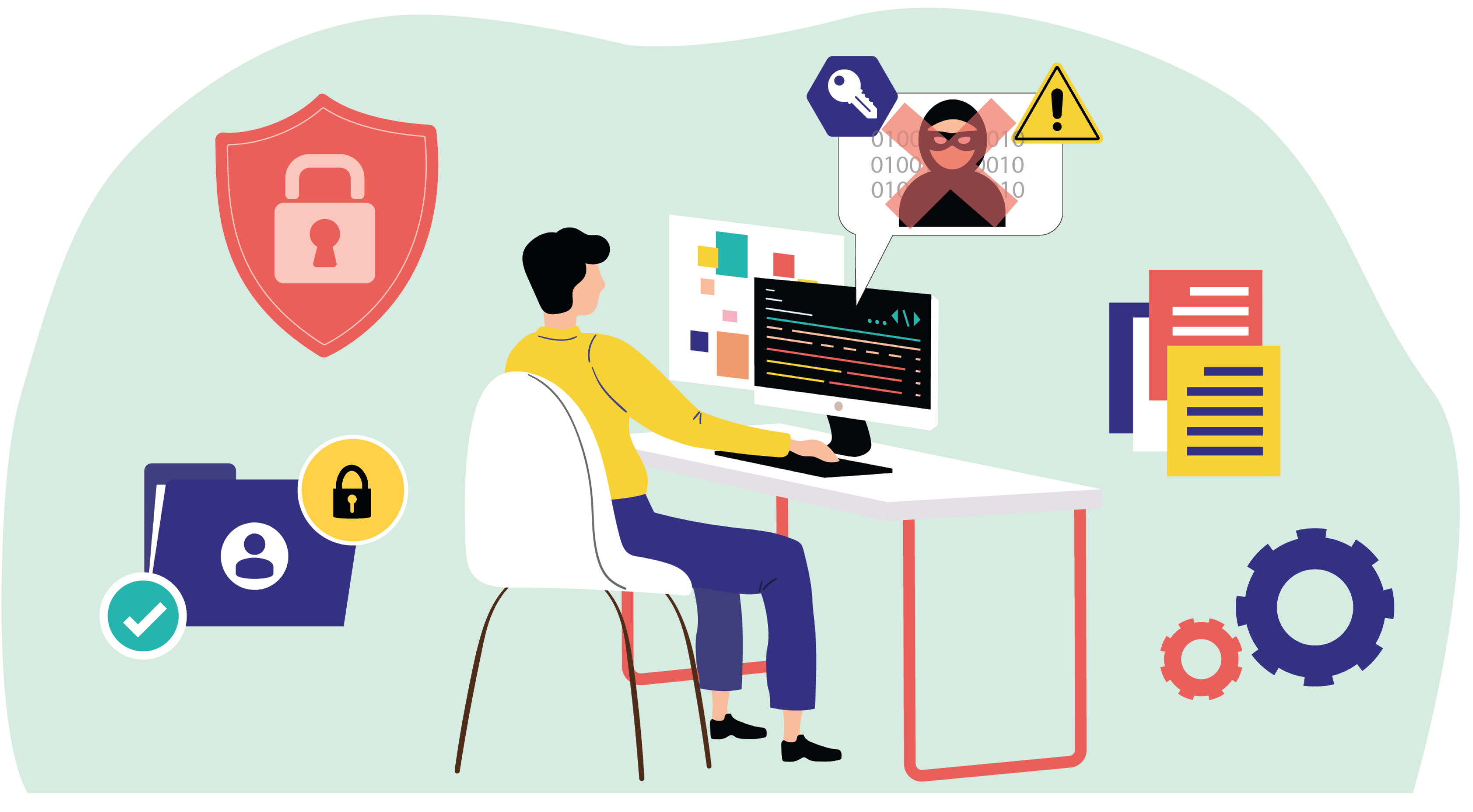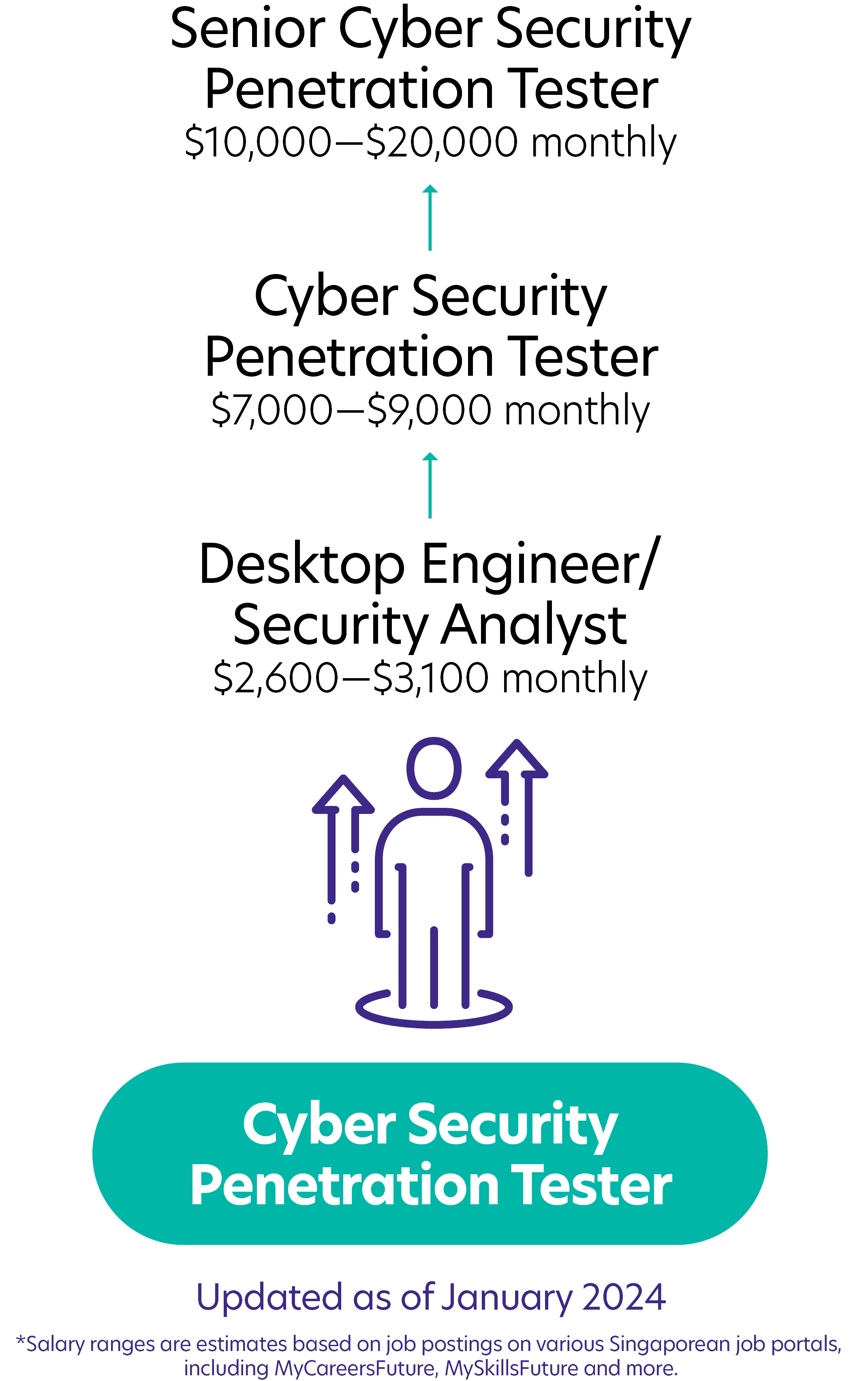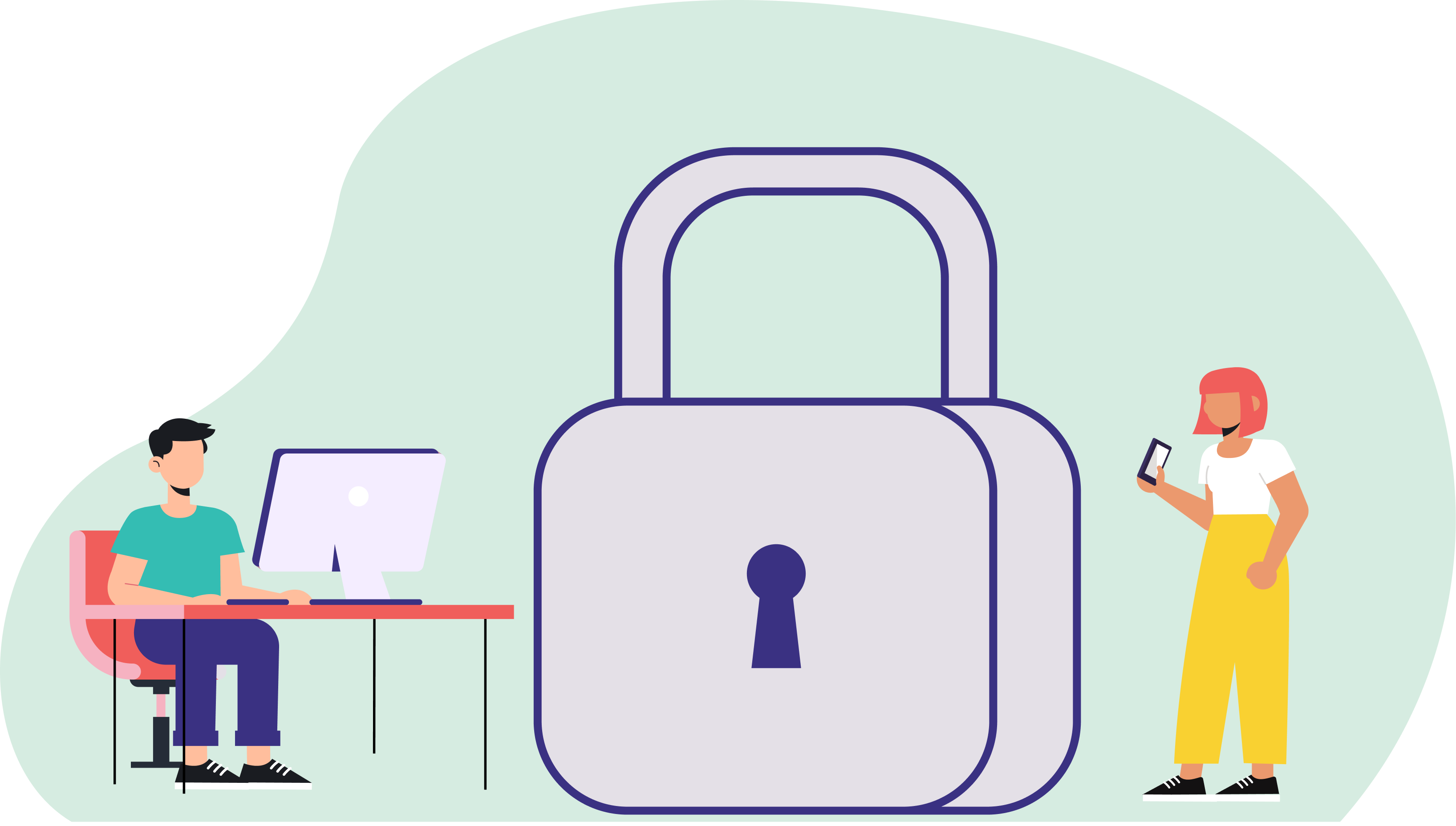
Cyber Security Penetration Testers, also known as "ethical hackers", infiltrate computer systems to find and patch flaws that non-ethical hackers may exploit to create great damage.
Cyber Security Penetration Tester Job Description
- Test computer systems, networks, and applications for vulnerabilities.
- Create innovative testing methods for detecting flaws.
- Assess the security of systems, servers, and other network devices to determine which areas need protection.
- Identify the methods and entry points that attackers could use to take advantage of vulnerabilities or flaws.
- Keep up-to-date with new software, technological advancements, and the latest malware and security threats.
- Collaborate with IT teams, management, and clients to conduct research, as well as assess, report, and discuss findings.
- Make enhancements to current security services, such as hardware, software, policies, and procedures.
Note
While Cyber Security Penetration Testers work regular office hours, they perform testing at night. This minimises the company’s downtime and does not compromise employee productivity.
What you should know about Cyber Security Penetration Tester jobs in Singapore
Nature of Work
You will do an extensive amount of research and documentation to ensure you are up-to-date with the latest computer security systems.Key advice
Constantly refine your skills and techniques to anticipate and exploit vulnerabilities before malicious actors do.-
Entry RequirementsEntry Requirements
- Minimally, a diploma in Infocomm or a bachelor's degree in Computer Security is required.
- It is highly recommended to take external courses such as the Offensive Security Certified Professional (OSCP) certification, which provides extensive computer hacking knowledge.
- Experience with various security testing tools (e.g., Metasploit, Wireshark) is advantageous.
- Familiarity with scripting and programming languages (e.g., Python, Bash) enhances candidacy.
- A solid understanding of network protocols and configurations is essential.
-
Possible PathwayPossible Pathway

Skills you need to pursue a Cyber Security Penetration Tester career in Singapore
Knowledge of vulnerabilities and exploits
Stay updated with the latest security threats.Ability to script and write code
Write scripts to test systems, analyse data and create tools using Python, Bash, and PowerShell.Microsoft Office Suite
Use Word, Excel, PowerPoint, and Access for effective data management and presentation.Cyber Risk Management
Identify, assess, and mitigate or manage cyber risks effectively.Security Assessment and Testing
Conduct vulnerability assessments, penetration tests, and security audits.Interpersonal Skills
Explain technical concepts to non-technical stakeholders and collaborate with other team members.Time Management
Prioritise tasks, manage workloads efficiently, and meet project timelines.Creative Thinking
Devise unique strategies to test and secure systems and identify potential vulnerabilities.Research Skills
Keep up-to-date with the latest developments in cybersecurity and learn about new tools and techniques.Attention to Detail
Be meticulous in testing and documenting processes, as small details can reveal significant vulnerabilities.
“We look for vulnerabilities in systems in the company's network and try to find it’s weak spots.”
Krishna, Cyber Security Penetration Tester
Related Job Roles
Explore Other Programmes
Browse AllYou have bookmarked your first item!
Find it in My Discoveries with insights on your interests!












